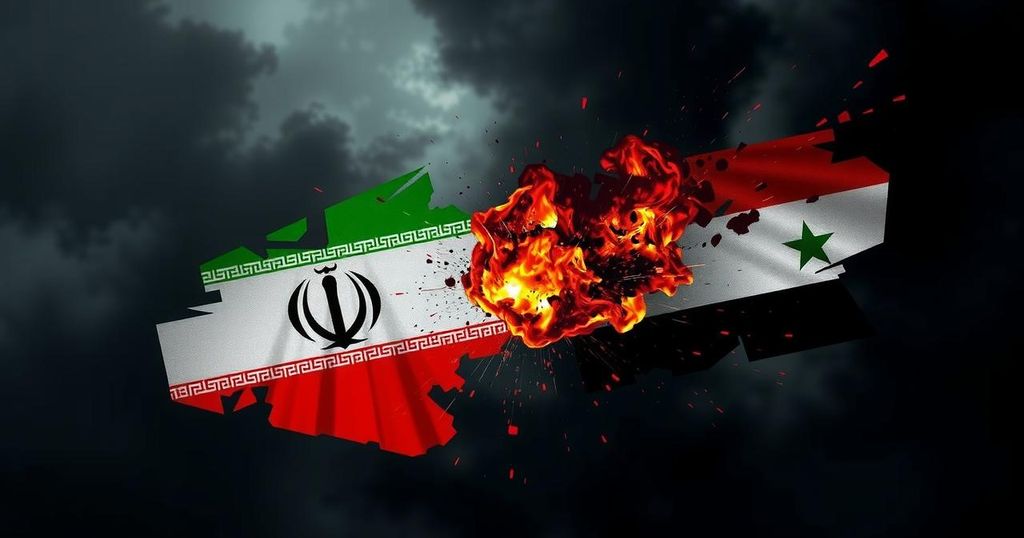Iran’s Weakening Position in Syria: Consequences of Conflict with Israel

Iran faces a deep strategic crisis in Syria due to its entrenched focus on countering Israel, as analyzed by Benny Sabati. Losses in military leadership and operational capacity prevent effective support for Assad’s regime, compounding domestic unrest and reliance on external powers like Russia for assistance. The unfolding scenario presents serious implications for both Iran and the Syrian government, dependent on regional powers’ actions.
A recent assessment by Benny Sabati, a researcher at the Institute for National Security Studies, highlights a significant crisis stemming from Iran’s military engagements in Syria and its ongoing conflict with Israel. Sabati asserts that Iran’s focus on countering Israeli actions has left its operational capabilities depleted and diminished. “The Iranians have paid a very high price for operating all their proxies against Israel over the past year,” he stated, underscoring the severe toll this focus has taken on Iran’s regional influence.
Additionally, Sabati elaborates that Iran’s military leadership has suffered losses, which complicates its position in supporting the Syrian regime. The loss of critical field commanders and the inability to provide meaningful support to Assad’s government have rendered Iran vulnerable. “Their command has been eliminated, their soldiers and field commanders… have faced significant casualties,” he mentioned.
The concurrent fronts that Iran must manage further exacerbate the situation. Sabati observes that Iran typically prefers not to engage on multiple fronts simultaneously, suggesting that its lengthy preoccupation with the Israeli front forced it to overlook the growing Sunni extremism in Syria. This neglect, he warns, carries consequences as evident from the renewed aggressions faced by the Iranian interests in the region.
In light of these challenges, Iran has sought assistance from Russia, underscoring its weakened position. However, even diplomatic overtures from Iranian officials seem ineffective, as Sabati notes, stating, “He can come to encourage – that’s all he can do. They don’t have much in their pocket.”
Moreover, tensions are rising domestically in Iran, with public discontent directed towards the government’s allocation of resources to foreign entities. Sabati concludes that the ramifications for Iran’s regional influence hinge on Russia’s response to the unrest, emphasizing a pivotal moment for both Iran and the Syrian regime.
The article addresses the impact of Iran’s prolonged engagement against Israel on its military capacity to assist allies, particularly in Syria. It examines the cost of operating multiple proxy conflicts and highlights the resulting weaknesses that have emerged from discontent both at home and in the broader regional context. The insights provided by Benny Sabati offer an understanding of Iran’s strategic miscalculations and vulnerabilities that stem from its current focus and operational fatigue.
In summary, Iran is grappling with significant strategic challenges due to its continued military commitments against Israel, which have adversely affected its ability to influence and support the Syrian regime during a critical juncture of heightened Sunni rebellion. As domestic frustrations rise and the Iranian military struggles to balance multiple fronts, the response from Russia may prove crucial in determining Iran’s future regional dynamics.
Original Source: www.jpost.com






